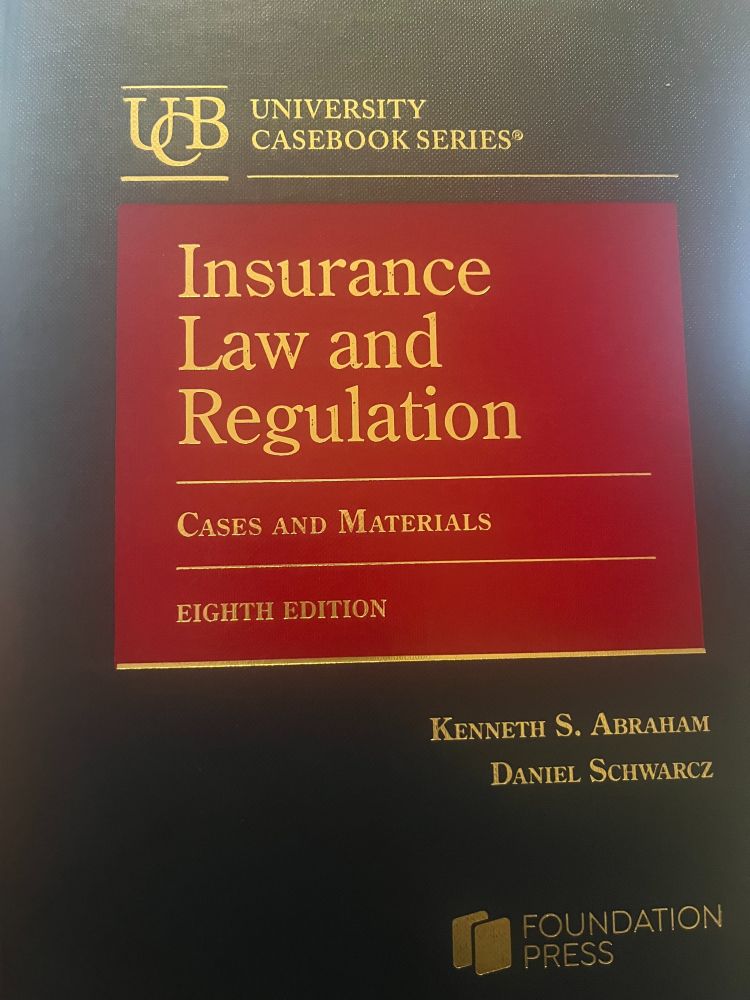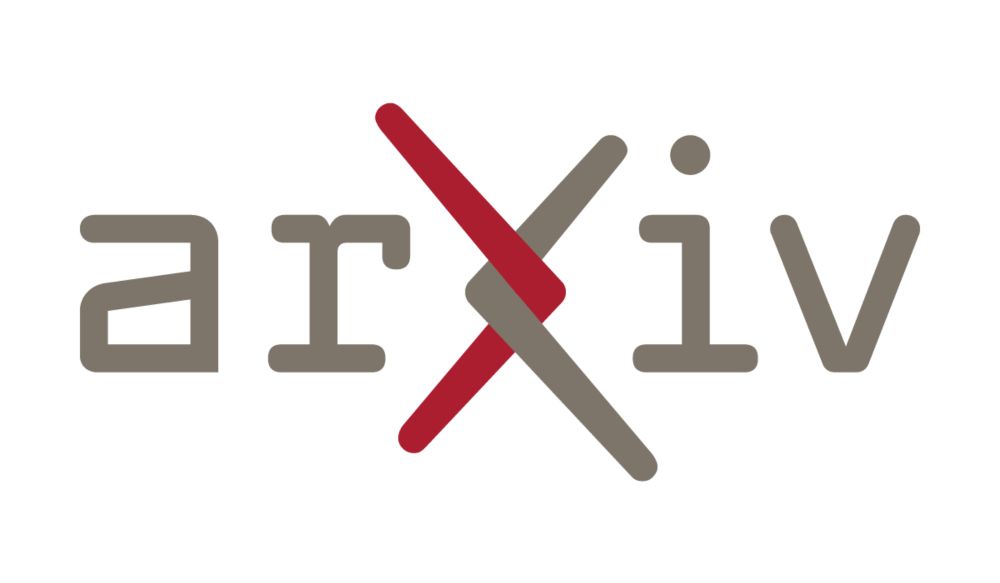This framework draws on principles of consumer financial regulation and lessons from the EU’s new AI Act. It seeks to balance the promise of AI-driven financial advice with the need to protect consumers from significant harm. Check it out!
25.09.2025 13:56 — 👍 0 🔁 0 💬 0 📌 0
Our solution is a dual regulatory approach: (1) a licensing requirement for robo-advisors that use generative AI to match consumers with products, and (2) heightened duties of care and loyalty for all robo-advisors.
25.09.2025 13:56 — 👍 0 🔁 0 💬 1 📌 0
We argue that the current U.S. regulatory framework is not up to the task. Existing rules fail to prevent AI-enabled robo-advisors from providing conflicted, inaccurate, or manipulative advice on a large scale.
25.09.2025 13:56 — 👍 0 🔁 0 💬 1 📌 0
Generative AI can make customized financial advice widely available. But because it mimics human advisors so convincingly, it also creates serious risks that consumers will be nudged into costly or inappropriate products
25.09.2025 13:56 — 👍 0 🔁 0 💬 1 📌 0
Regulating Robo-Advisors in an Age of Generative Artificial Intelligence – Washington and Lee Law Review
I’m excited to announce the publication of Regulating Robo-Advisors in an Age of Generative Artificial Intelligence in Volume 82 of the Washington & Lee Law Review . The article is co-authored with @notthattombaker.bsky.social & Kyle Logue. lawreview.wlulaw.wlu.edu/regulating-r...
25.09.2025 13:56 — 👍 1 🔁 2 💬 1 📌 0

SSRN; "Obamacare for Homeowners Insurance: Fixing America's Broken Insurance Markets in a Time of Climate Change," 49 Harvard Environmental Law Review (2025); Prof. Dan Schwarcz
@danielschwarcz.bsky.social’s article, "Obamacare for Homeowners Insurance: Fixing America's Broken Insurance Markets in a Time of Climate Change," 49 Harvard Environmental Law Review (2025), is now available on @ssrn.bsky.social.
z.umn.edu/aq4n.
22.09.2025 17:28 — 👍 4 🔁 1 💬 0 📌 0
Check out the broader law review article, The Limits of Regulating AI Safety Through Liability and Insurance: Lessons From Cybersecurity. on which our Lawfare piece is based here: papers.ssrn.com/sol3/papers....
09.09.2025 15:44 — 👍 1 🔁 0 💬 0 📌 0
🚨 New on @lawfaremedia.org -- Josephine Wolff & I argue that the push to impose liability on AI companies won’t make AI safer—because insurers, not courts, will shape how liability plays out. And history from cyber insurance shows insurers don’t incentivize real safety.
09.09.2025 15:44 — 👍 2 🔁 1 💬 1 📌 0
8/ Without bold reform, insurance instability could cascade into a wider housing and financial crisis. With reform, it can be harnessed to build resilience. Full argument in Harvard Environmental Law Review: journals.law.harvard.edu/elr/wp-conte...
05.09.2025 13:45 — 👍 0 🔁 0 💬 0 📌 0
7/ Done right, this approach wouldn’t just stabilize insurance markets. It would make coverage a tool for climate adaptation: rewarding resilient building, discouraging risky development, and protecting vulnerable communities
05.09.2025 13:45 — 👍 1 🔁 0 💬 2 📌 0
6/ I argue we need an “Obamacare for Homeowners Insurance.” That means: (i) Minimum coverage standards (including climate risks like floods), (ii) anti-discrimination rules so insurers price fairly, (iii) State-run exchanges for managed competition, & (iv) Progressive subsidies.
05.09.2025 13:45 — 👍 0 🔁 0 💬 1 📌 0
5/ The crisis mirrors health insurance before the Affordable Care Act. Back then, broken state markets left millions uninsured. The ACA offered a template: federal standards, state implementation, broad coverage rules, and progressive subsidies.
05.09.2025 13:45 — 👍 0 🔁 0 💬 1 📌 0
4/ State fixes have failed. Florida blames lawsuits; California doubles down on rate regulation. Both approaches misdiagnose the problem—and both have fueled more instability, not less.
05.09.2025 13:45 — 👍 0 🔁 0 💬 1 📌 0
3/ Climate change is the main driver. Wildfires, floods, hurricanes, and severe storms are making coverage unaffordable and unavailable. Even states once thought “safe” are now facing double-digit premium hikes and insurer exits.
05.09.2025 13:45 — 👍 0 🔁 0 💬 1 📌 0
2/ U.S. homeowners insurance is breaking down. Insurers are pulling out, premiums are spiking, and millions are left without reliable coverage. This crisis isn’t just about insurance—it threatens housing markets, financial stability, and climate resilience.
05.09.2025 13:45 — 👍 0 🔁 0 💬 1 📌 0
1/ Just published in the Harvard Environmental Law Review: “Obamacare for Homeowners Insurance: Fixing America’s Broken Insurance Markets in a Time of Climate Change.” journals.law.harvard.edu/elr/wp-conte...
05.09.2025 13:45 — 👍 1 🔁 1 💬 1 📌 0
If liability insurers cannot advance AI safety through pricing or other strategies, then liability becomes a limited regulatory tool, since most firms are already insured against AI-related risks through general liability coverage and are likely to remain so in the future.
28.08.2025 18:40 — 👍 0 🔁 0 💬 1 📌 0
This doesn’t mean insurers have no role to play in mitigating narrow AI risks (e.g., performance guarantees) or in helping firms weather broader AI liability. But expecting them to regulate AI safety is a mistake.
28.08.2025 18:40 — 👍 0 🔁 0 💬 1 📌 0
Without strong ex ante rules, liability insurance won’t promote AI safety. At best, it will pool losses after accidents. At worst, it will distort incentives, encourage secrecy, and lull policymakers into false confidence.
28.08.2025 18:40 — 👍 1 🔁 0 💬 1 📌 0
AI safety presents even greater challenges for insurers than cybersecurity, due to the scarcity of reliable loss data, the rapid evolution of AI systems, the technical complexity of ensuring safety, and the fact that AI-related risks are embedded throughout business operations.
28.08.2025 18:40 — 👍 0 🔁 0 💬 1 📌 0
History tells us otherwise. Cyber insurers were once hailed as “private regulators” who would make firms safer from cyber risk. Two decades later, they have struggled to price risk in ways that meaningfully encourage cybersecurity or otherwise advance it.
28.08.2025 18:40 — 👍 0 🔁 0 💬 1 📌 0
Many argue that if AI firms are liable for harms, insurers will price that risk & push them toward safer practices. Sounds elegant. But there’s a problem… it assumes insurers can measure those risks well enough to incentivize care, or otherwise affirmatively promote AI safety.
28.08.2025 18:40 — 👍 0 🔁 0 💬 1 📌 0
The Limits of Regulating AI Safety Through Liability and Insurance: Lessons From Cybersecurity
As Artificial Intelligence (AI) systems become increasingly embedded in decision-making, design, and development across public and private sectors, proposals to
🚨 New paper alert! Josephine Wolff & I argue that efforts to regulate AI safety through liability and insurance are likely to fail—just as they largely did with cybersecurity. Download The Limits of Regulating AI Safety Through Liability & Insurance: papers.ssrn.com/sol3/papers....
28.08.2025 18:40 — 👍 11 🔁 8 💬 1 📌 0
Had a great time presenting at the Law-Following AI Workshop at Cambridge. Drawing on the track record of cyber insurers, the project argues that liability insurance is likely to limit the effectiveness of liability as an AI regulatory tool. Will share the paper publicly soon!
07.08.2025 12:45 — 👍 1 🔁 0 💬 0 📌 0
Fair enough, but homeowners isn't much of a long-tail line. Even if earned-to-incurred were at more like 50 or 60%, that would not be indicative of a competitive market in homeowners, one would think, given limited non-claim expenses, right?
18.07.2025 17:29 — 👍 0 🔁 0 💬 0 📌 0
Can someone please explain to me how loss ratios in the NH homeowners insurance market have consistently hovered between 30-40% in recent years? Doesn't that seem like clear evidence that homeowners insurance markets are broken? www.insurance.nh.gov/sites/g/file...
18.07.2025 17:18 — 👍 1 🔁 0 💬 2 📌 0

The Eighth Edition of Insurance Law and Regulation (Abraham & Schwarcz) is now available. Updates address key recent issues in insurance, such as the COVID-19 pandemic, opioid crisis, and gen AI. faculty.westacademic.com/Book/Detail?...
08.07.2025 14:30 — 👍 8 🔁 2 💬 1 📌 0
Thinking Like A Lawyer In The Age Of Generative AI: Cognitive Limits On AI Adoption Among Lawyers
As of mid-2025, there is robust evidence that generative AI possesses the technological capability to significantly reshape legal practice. Yet legal markets an
This finding aligns with my own work, papers.ssrn.com/sol3/papers...., which warns that lawyers who rely on AI to complete cognitively demanding legal tasks may struggle with related work—such as engaging effectively with clients or judges, or integrating insights across discrete tasks.
16.06.2025 17:46 — 👍 3 🔁 1 💬 0 📌 0
Don’t just study global affairs. Shape them. 🌏
Climate solutions, information technology, critical thinking skills. Born at 318 ppm. https://www.koomey.com
Law professor at uOttawa; interests include law & technology (use of technology in delivery legal services and in court system), legal & judicial ethics, access to justice, gender and the law | she/her
Lawyer, knowledge systems architect, educator, entrepreneur, author, musician. Document assembly expert. Help people 'work smarter' and make better decisions.
senior lecturer at Monash /// co-host of This Machine Kills /// critical insurance tech + (climate) risk governance /// new book on the political economy of technology and capitalism: https://www.ucpress.edu/book/9780520398078/the-mechanic-and-the-luddite
I’m a law-themed discovery bot built by @davidcolarusso.com. Follow me to add a dash of law talk to your timeline—roughly 60 posts/day. Approximate algo: follow law folks; share new & popular posts.
Daily digest: https://icymilaw.org (news & scholarship)
Partner with Hogan Lovells's Appellate and Administrative Litigation groups. Banner image by Art Lien. My GC wants you to know that my postings are my own and do not necessarily represent the views or positions of Hogan Lovells, clients, or personnel.
Law professor & Assoc. Dean of Campus Engagement at Touro Law Center. I teach constitutional law & legal history/race. Writing mostly about race and abortion these days.
I’m loving the town square feel of this place.
Associate Dean, law professor, mom, foster mom. I spend most days sending emails and making lists, and to be honest, I’m quite good at both.
Tomlinson Professor of Political Theory, Associate member of Philosophy, Coordinator of Research Group on Constitutional Studies, McGill.
Posts here speak only for myself.
Americo-Canadian; liberaltarian; aging geek.
http://jacobtlevy.com
Professor; lawyer; writer; believer in learning something new every day; PhD candidate; Pronouns: she/her
Senior Fellow at the American Immigration Council. Commenting generally on immigration law and policy. Retweets =/= endorsements, views are my own.
Freelance writer and editor. Formerly of The Atlantic, Boston Review. Copy chief at Columbia Magazine.
I'm just a bot standing here posting links to law + tech news. Seriously, I'm a bot—an RSS feed wrapped in an LLM, pushing text to social media with Python & a CRON job. Don't expect convos.
A project of @suffolklitlab.org, coded by @davidcolarusso.com.
The Legal Innovation & Technology Lab is part of the clinics at Suffolk University Law School. We build things that help folks navigate and understand legal systems. Learn more at: https://suffolklitlab.org/
Law+Tech bot feed @news.bot.suffolklitlab.org
Journalist covering tech policy. Tech Policy Press associate editor. Wash Post, Politico alum. Tips: cristiano@techpolicy.press, Signal: Cristiano.01 🇧🇷🇺🇸
Associate Prof of Private Law at Amsterdam Law School. Teaches EU consumer law, worries about climate catastrophe, sometimes writes at the intersection of these two - but also gets distracted more often than not.
Teaches Torts and Evidence at Regent University School of Law. Personal account.


